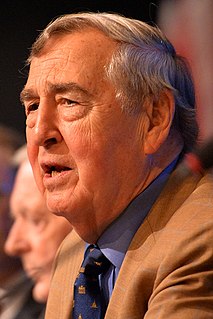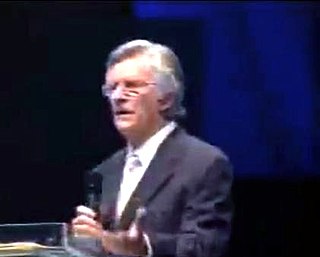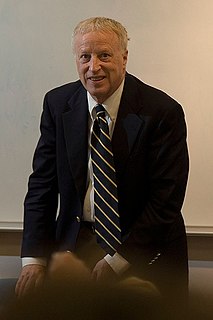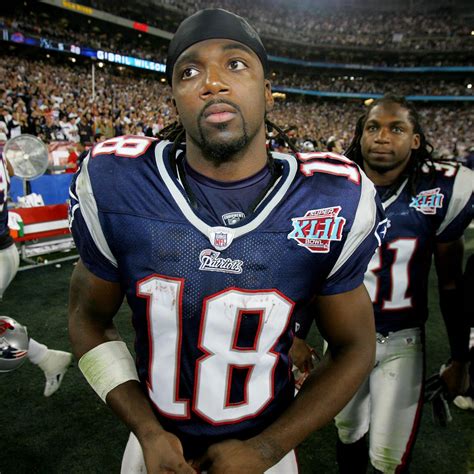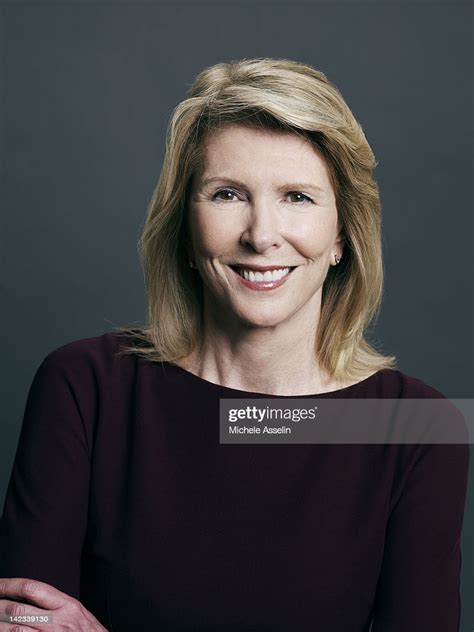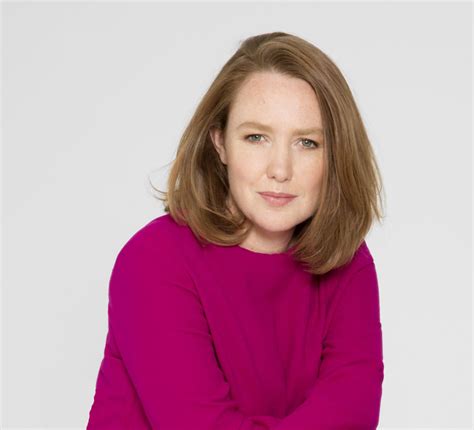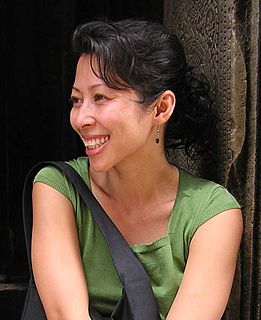Top 639 Grandchildren Quotes & Sayings - Page 11
Explore popular Grandchildren quotes.
Last updated on November 25, 2024.
All the stories of the Bible that I know came to me first from my grandfather's lips... He would see stories in everything. He told stories very easily and very generously, so I loved him for that. He was a simple man, a Victorian; he was born in 1890-something. He saw no reason and had never seen any reason to question his Christian faith. His faith was strong and simple and that's it. And I, like his other grandchildren and the children in his parish, sheltered underneath it.
I promise that if you will keep your journals and records, they will indeed be a source of great inspiration to your families, to your children, your grandchildren, and others, on through the generations. Each of us is important to those who are near and dear to us and as our posterity reads of our life's experiences, they, too, will come to know and love us. And in that glorious day when our families are together in the eternities, we will already be acquainted.
I remember as a ranger the first time I stood alone on Inspiration Point over at Canyon Station looking out over this beautiful land. I thought to myself how lucky I was that my parents' and grandparents' generation had the vision and the determination to save it for us. Now it is our turn to make our own gift outright to those who will come after us, 15 years, 40 years, 100 years from now. I want to be as faithful to my grandchildren's generation as Old Faithful has been to ours. What better way can we add a new dimension to our third century of freedom?
One of the three big factors that count against war in the relationship between China and the U.S. are, first, nuclear weapons and even a condition of mutual assured destruction. Secondly, one's got two economies that have become so deeply interlaced that a war between the U.S. and China would leave Wal-Marts empty and Chinese factories producing for nothing. Thirdly, climate - if between the two of us, we keep doing what we're doing, we can create a climate in which our grandchildren won't be able to live.
[After her 18-day disappearance in 1974:] I love my husband very, very much, but he didn't ask me when he ran for mayor and he didn't consult me about running for governor. It would be nice to be asked. ... You know, I've been my mother's daughter, my father's daughter, the wife of my husband, the mother of my six children, and grandmother to my eleven grandchildren, but I have never been me. But I am now because I went away. I am a changed woman.
Every age has its dreams, its symbols of romance. Past generations were moved by the graceful power of the great windjammers, by the distant whistle of locomotives pounding through the night, by the caravans leaving on the Golden Road to Samarkand, by quinqueremes of Nineveh from distant Ophir . . . Our grandchildren will likewise have their inspiration-among the equatorial stars. They will be able to look up at the night sky and watch the stately procession of the Ports of Earth-the strange new harbors where the ships of space make their planetfalls and their departures.
They had each other and there was a love between them that would withstand anything. Alina and I had always intuited, with no small wry pique, that, although our parents adored us and would do anything for us, they loved each other more. As far as I was concerned, that was the way it should be. Kids grow up, move on and find a love of their own. The empty nest shouldn't leave parents grieving. It should leave them ready and excited to get on with living their own adventure, which would, of course, include many visits to children and grandchildren.
There are three reasons, . . . apart from scientific considerations, mankind needs to travel in space. The first . . . is garbage disposal; we need to transfer industrial processes into space so that the earth may remain a green and pleasant place for our grandchildren to live in. The second . . . to escape material impoverishment: the resources of this planet are finite, and we shall not forego forever the abundance of solar energy and minerals and living space that are spread out all around us. The third . . . our spiritual need for an open frontier.
When you have a baby you start thinking of death cuz' you see the opposite of life. I've calmed down now but for the first or two years, I kept thinking: "Oh my God, if I die what's going to happen to the child?" And you realise how vulnerable they are, but how critical your own life is because they're so dependent on you. You do feel your own mortality. I kept saying to myself: "OK, when they're 18, I'll be 'x'; so if they get married at 30, I'll be'x'will I get to see grandchildren?" So, since they've been born I've been thinking about death the whole time.
God's Word will never pass away, but looking back to the Old Testament and since the time of Christ, with tears we must say that because of lack of fortitude and faithfulness on the part of God's people, God's Word has many times been allowed to be bent, to conform to the surrounding, passing, changing culture of that moment rather than to stand as the inerrant Word of God judging the form of the world spirit and the surrounding culture of that moment. In the name of the Lord Jesus Christ, may our children and grandchildren not say that such can be said about us.
The next 15 years will see thousands of people leave the atmosphere on suborbital flights. My company's SS2 system might fly 100,000 people by 2024. If it is shown to be highly profitable, perhaps we will see 20,000 people traveling to orbit by 2035, and then thousands to the moon by 2050. If we make a courageous decision, like the program we kicked off for Apollo, we will see our grandchildren in outposts on other planets.
God not only loves his people but delights in each one of us. He takes great pleasure in us. He's actually blessed in keeping and delivering us. I see this kind of parental pleasure in my wife, Gwen, whenever one of our grandchildren calls. Gwen lights up like a Christmas tree when she has one of our dear little ones on the line. Nothing can get her off the phone. Even if I told her the President was at our door, she'd shoo me away and keep talking. How could I ever accuse my heavenly Father of delighting in me less than I do in my own offspring?
Conservatives came to office to reduce the size of government and enlarge the sphere of free and private initiative. But lately we have increased government in order to stay in office. And, soon, if we don't remember why we were elected we will have lost our office along with our principles, and leave a mountain of debt that our children's grandchildren will suffer from long after we have departed this earth. Because, my friends, hypocrisy is the most obvious of sins, and the people will punish it.
Another of the hard things about being in a war, grandchildren, is that although there are times of quiet when the fighting has stopped, you know you will soon be fighting again. Those quiet times give you the chance to think about what has happened. Some of it you would rather not think about, as you remember the pain and the sorrow. You also have time to worry about what will happen when you go into battle again.
Donald Trump is a man who just absorbs information and people and experiences. And I've witnessed him firsthand with his five children, his 10 year old son, his wife Melania, who's just an incredible first lady for all of us, amazing. God bless her, we're all very luck to have her leadership, as well. And I've witnessed him with his four adult children and his eight grandchildren. He's a family man.
Maybe the American Dream is too rich for us now in the U.S. Maybe we're losing it because we are not like our Swedish grandmother who came across the plains, hacked down the trees, and took the Spanish words she encountered and made them hers. Now her great-great-grandchildren sit terrified, wondering what to do with all these Mexicans. The American Dream is an impossible affirmation of possibility. And maybe native-born Americans don't have it anymore. Maybe it has run through their fingers.
Peace is here now. It's just that we don't recognize it. Let's say that 98 percent of people in the world are wanting peace. Now people say, even people from Siberia? Yes. We want world peace. The two percent is really tying to mess it up. It's so sad in a way, because by messing it up what are they going to get? Their children are going to suffer, their grandchildren are going to suffer, and they might even die before something gets good.
A half century from now, our grandchildren are likely to look back at the era of mass employment in the market with the same sense of utter disbelief as we look upon slavery and serfdom in former times. The very idea that a human being's worth was measured almost exclusively by his or her productive output of goods and services and material wealth will seem primitive, even barbaric, and be regarded as a terrible loss of human value to our progeny living in a highly automated world where much of life is lived on the Collaborative Commons.
Historically, girls have not been encouraged to be scientists, to be explorers, and there's a social kind of constraint, of course. Having the responsibility, a disproportionate part of the responsibility, for caring for families, caring for children. I know this challenge from firsthand experience because I have three children and four grandsons.And some of the time I have spent as a scientist and as an explorer has meant choosing to not be with my children and grandchildren as much as I might otherwise have done had I not been a scientist, an explorer.
The Mayas, our grandparents, always said; every human being occupies a small piece of time. Time itself is much longer, and because of this they always said that we must care for this earth while we are on it because it will be part of our children and the children of our grandchildren. They know that life is short, that it can end so soon, and that if one gets lost on the way, others will come to take their place.
So far as we know, Earth is the only planet which supports life, and it is the only planet on which we can survive. Our bodies and our minds are fashioned by it. Our hearts resonate with it. There will be little joy for the human spirit if we destroy the natural fabric of Earth with nothing left to do but go shopping. When we imagine the world a century from now, when we look our great grandchildren in the eye and see them smiling back at us because they know we cared for them, we smile too!
Of course, we carry inside of ourselves our parents. Even when they are dead, we carry them inside ourselves. And they are carrying inside themselves their dead parents and so on and so forth. There is a legacy of language and culture and religion. In some cases, family stories told by grandparents to little grandchildren. When I say my novels are set in Israel in the last seventy years, this entails the fact that they begin hundreds or thousands of years earlier in time. Everybody comes from somewhere.
My mother has made choices in her life, as we all must, and she is at peace with them. I can see her peace. She did not cop out on herself. The benefits of her choices are massive-a long, stable marriage to a man she still calls her best friend; a family that has extended now into grandchildren who adore her; a certainty in her own strength. Maybe some things were sacrificed, and my dad made his sacrifices, too-but who amongst us lives without sacrifice?
We, perhaps, have corrupted our children and our grandchildren by heedless affluence, by a lack of manliness, by giving the younger generation more money and liberty than their youth can handle, by indoctrinating them with sinister ideologies and false values, by permitting them, as young children, to indulge themselves in imprudence to superiors and defiance of duly constituted authority, by lack of prudent, swift punishment when the transgressed, by coddling and pampering them when they were children and protecting them from a very dangerous world.
I don't reject the concept of preemptive war. I'm a mother of five. I have five grandchildren. And I always say: Think of a lioness. Think of a mother bear. You come anywhere near our cubs, you're dead. And so, in terms of any threat to our country, people have to know we'll be there to preemptively strike. But what the president [Bush] did was, on the basis of no real intelligence for an imminent threat to our country, chose to go into a war for reasons that are still unknown to us.
...I believe deeply that we canot solve the challenges of your time unless we solve them together - unless we perfect our union by understanding that we may have differnt stories, but we hold common hopes; that we may not look the same and we may not have come from the same place, but we all want to move in the same direction - towards a better future for our children and our grandchildren. This belief comes from my unyielding faith in the decency and generosity of the American people.
Each of us must come to care about everyone else's children. We must recognize that the welfare of our children and grandchildren is intimately linked to the welfare of all other people's children. After all, when one of our children needs lifesaving surgery, someone else's child will perform it. If one of our children is threatened or harmed by violence, someone else's child will be responsible for the violent act. The good life for our own children can be secured only if a good life is also secured for all other people's children.
This is one way that wealthy Americans could really contribute. They could put hundreds of millions of dollars into the infrastructure bank, be a good investment for them, for their children, for their grandchildren, and they would directly contribute to revitalizing a big sector of middle-class wages in America and making our country more productive, so that we could create more opportunity. But I think that we could get a lot of grassroots support from, like, local chambers of commerce and other things if they understood exactly how this infrastructure bank would work.
Some time ago a little-known Scottish philosopher wrote a book on what makes nations succeed and what makes them fail. The Wealth of Nations is still being read today. With the same perspicacity and with the same broad historical perspective, Daron Acemoglu and James Robinson have retackled this same question for our own times. Two centuries from now our great-great- . . . -great grandchildren will be, similarly, reading Why Nations Fail.
The energy crisis has not yet overwhelmed us, but it will if we do not act quickly. It's a problem that we will not be able to solve in the next few years, and it's likely to get progressively worse through the rest of this century. We must not be selfish or timid if we hope to have a decent world for our children and grandchildren. We simply must balance our demand for energy with our rapidly shrinking resources. By acting now we can control our future instead of letting the future control us.
I've never thought that I would see any man of color, not just a black president, but any man of color, I never thought that I would live to see that. I thought maybe my grandchildren would, but I never thought I would. So when Barack Obama first started to run I was like, "I've never heard of this guy - he probably doesn't have a shot." But then he started picking up steam and that piqued my interest.
I think oldest children have a different mentality or know that there were different expectations of them, and I was not only the oldest child - I was the oldest grandchild of 18 grandchildren. I definitely grew up feeling like there were a lot of people who expected me to do something. But it was a very conservative family, very conservative neighborhood. I'm talking mid- to late '60s when I was growing up there, and so if I had stayed in the Boston area, I think my life would have been radically different.
Every widow wakes one morning, perhaps after years of pure and unwavering grieving, to realize she slept a good night's sleep, and will be able to eat breakfast, and doesn't hear her husband's ghost all the time, but only some of the time. Her grief is replaced with a useful sadness. Every parent who loses a child finds a way to laugh again. The timbre begins to fade. The edge dulls. The hurt lessens. Every love is carved from loss. Mine was. Yours is. Your great-great-great-grandchildren's will be. But we learn to live in that love.
...More important than the deficit, more important then healthcare-more important than anything-we have got to do something about our energy strategy. Because if we permit the climate to continue to warm at an unsustainable rate, and if we keep on doing what we're doing until we're out of oil and we haven't made the transition, then it's inconceivable to me that our children and grandchildren will be able to maintain the American way of life and that the world won't be much fuller of resource-based wars of all kinds.
We warn our children and grandchildren about peer pressure. We want them to say no to the vices of the world: drinking, drugs, and other destructive behaviors. But as we move from childhood to adulthood, we find the peer pressure changes. Daniel 3:2 notes "the satraps, the administrators, the governors, the counselors, the treasurers, the judges, the magistrates, and all the officials of the provinces" were there. I'm sure more than one of them thought they needed to keep their job with all of its benefits. Not much has changed in two-and-a-half millennia.
Senior executives can, after a fashion, get a portion of their pay tax-free. You defer part of your income and not have to pay taxes on it, and then when you retire you have the company buy a life insurance policy on you using that money. The company can deduct that money because it is a business expense, and the money will get paid out to your children or grandchildren when you die, so you have effectively given them your money and it's never been taxed.
And then it occurs to me. They are frightened. In me, they see their own daughters, just as ignorant, just as unmindful of all the truths and hopes they have brought to America. They see daughters who grow impatient when their mothers talk in Chinese, who think they are stupid when they explain things in fractured English. They see that joy and luck do not mean the same to their daughters, that to these closed American-born minds "joy luck" is not a word, it does not exist. They see daughters who will bear grandchildren born without any connecting hope passed from generation to generation.
When I approach a more mature age, I am not going to live in America. Visiting my grandmother, when she was 94, which is a very long life in Cambodia, I saw how important it was that she was in a community with my sisters, brothers and all grandchildren were so involved in her life. I liked that experience so much more than visiting my sister-in-law's grandparents in a nursing home. It's about looking at a community through your window versus being part of a community that's alive, that is youthful and old and hungry and smelly and loud, where everything is vibrant and colorful.
Other than his ex-wife and despite appearances with a series of cultivated blondes, Edward de Bono has never publicly aligned himself with a woman. 'I’m looking for a fat, cross-eyed hunchback,' he explains, stifling a giggle. 'A prosthetic hump would do.' His delight evaporates when asked about his three grandchildren. 'Am I a doting grandfather?' He pauses. 'I’m a … something grandfather, yes.' The fact that De Bono remains unperturbed by this lack betrays an emotionally austere childhood, and his passions for play, toys, and bad jokes tell of the same deprivation.



